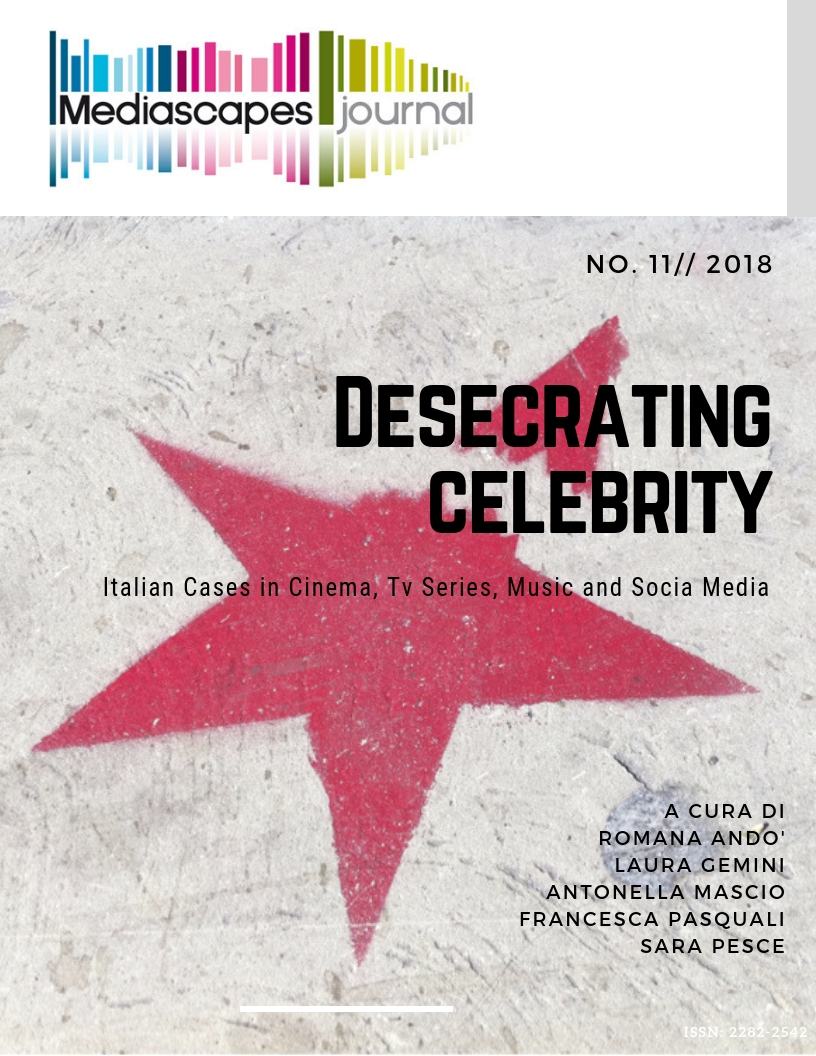1992 / 1993. A story of political celebrity degradation through a fiction framework
Abstract
Milan early Nineties. The city became famous in media news thanks to the "Mani Pulite" investigation, led by a pool of magistrates and attorneys who became quite well known at the time; in Italy this will mark the passage from the first to the second Republic. Alongside the legal issues that shook public opinion, the media-land social practices of the degradation of a political body emerged with force: the public questioning of an entire system mostly focusing on some well-knowns names, tied to the major political parties from that historic period.
The 1992 and 1993 TV series (Italy, 2015 - 2017, Wildside, in collaboration with Sky and LA7) focus on the events that emerged from those investigations and which led to the scandal called Tangentopoli. 1992 and 1993 reveal the story of the degradation of political celebrities, against the background of the degradation of the city of Milan, a symbol of the Made in Italy success of the 1980s.
Our analysis explores the way in which degradation and delegitimization processes are told in the series. Our lines of analysis concern the following questions: what are the narrative strategies that underline the shift from positive to negative celebrity, not only for individuals, but for an entire political and economic system? How was the social value of political celebrity transformed during Tangentopoli? How much did the media system participate in this narration? Is it possible to find a sense of nostalgia during the degradation process? Is it possible to speak of real "ceremonies of degradation"?


